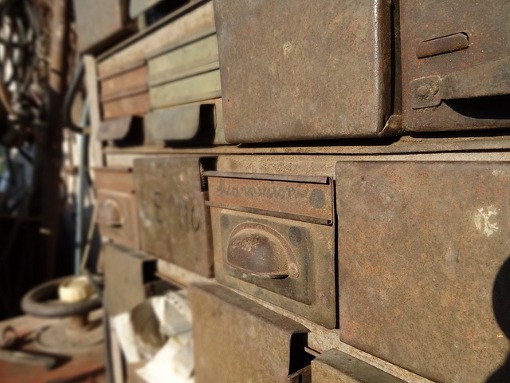Operations
Tool Room Assessment Check List
I can usually assess the entirety of a tool room’s safety and health by poking around for an hour. Through experience, I’ve learned to run through a simple tool control checklist. I look for the following items for tool room management:
1. Documentation
Suggested Resources
Check out our articles on What is FOD? or How to Set Up a FOD Program for more information.
- Is guidance posted?
- Are forms properly filled out for each toolbox?
- Are tools accounted for?
- Was the box properly checked in and out?
- Where’s the box or individual tool that is missing?
- Are calibrated tools such as torque wrenches current?
- What happened to the broken ones?
- Who has the CTK that isn’t in the tool room?
- If I go and look for it, will it be with the one who supposedly has it?
- Are all lost items properly looked for? Documented? Tracked?

2. Tools Identified
- Is every tool in the kit identified for that kit?
- Is every tool singly identified (no double etching)?
- Do identical tools such as torque wrenches that are stored together in a kit have a home? For instance, if five torque wrenches are all removed together, do you know which one goes in each spot in the drawer?
- Are tiny items such as drill bits stored in a larger container so that they can be kept together as a group?
- Is the larger container or sub-tray specifically identified for that kit?
- How are your rags controlled? Do you count them out and count them back in again?
3. Tools Clean and Serviceable?
- Pick each one up.
- Are the kit and kit contents dry?
- Are they free of corrosion?
- Free of excessive oil and grease?
- Are there any foreign objects in the box underneath where the tool lay?
- Are there any foreign objects under the toolkit foam?
- Is the toolkit interior and exterior in good repair?
- Is the padlock on a lanyard?
- Is the padlock etched?
- Does each toolkit have a FOD bag or FOD can?
4. Test Equipment
- Is it current in calibration?
- Are accessories identified for that item?
- Do individual training records document certification on high cost or special test equipment?
- Are all items properly stored?
- Are all items accounted for?
- Is there a calibration schedule for all test equipment items?
- Is there an equipment brochure available?
- Are handles, knobs, dials and viewing surfaces tight and clean?
- Are all screws, bolts, fasteners and general hardware accounted for?
- Are power cords and adapters in serviceable condition?
- Are batteries free of corrosion? Are they stored separately?
5. Leadership
- Do managers and supervisors periodically visit and help inspect the tool room and equipment checklists?
- When it gets busy, do toolkit check-ins and check-outs become top priority for everyone in the tool room?
- Is guidance and policy directed from the top down? Is there a good feedback process from the most junior member of the team back up to leadership?
- Do supervisors reward top performers? Do they guide and lead by example?
- Do supervisors assess their own toolkits regularly?
6. Quality Assurance
- Does your QA inspect the tool room each month?
- Are they fair in their assessments?
- Do they share trend information with tool room personnel?
- Do they spend time to teach and train?
- When they walk into the tool room, do people fear their tread? (I hope not.)
7. Individual Tool Items
- Are all separate items marked?
- Are they checked in with the same care as a small toolkit?
- Does each have a clearly marked home?
- Are all the holders, racks and shadowed spots inventoried before the off-going shift is released from duty?
8. Bench and Operating Stock
- Is the exact number of needed items counted out before they are handed over the counter?
- Do technicians and mechanics have free access to bench stock?
- Should you expect the old items back?
- Do you trade an old bolt for a new one? Should you?
- Are similar containers of liquid clearly marked so you don’t hand out the wrong stuff?
- If what the customer is asking for doesn’t sound right, do you question it?
- If you hand out disposable brushes, sponges, paper and such do you know where they all went?
- Should you be asking for them back?
9. The Non-Punitive Policy
- What’s going to happen to the person who left the tool in the jet?
- Have you implemented a non-punitive policy (quick to admit — all is forgiven)?
- If you haven’t, what do you think might happen?


